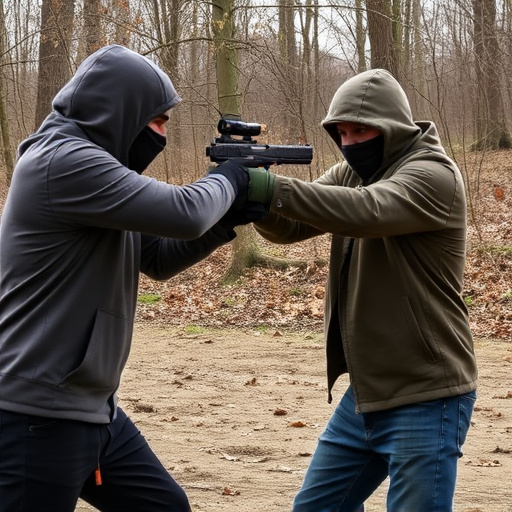College students considering self-defense stun guns face varied state laws. US regulations differ on permit requirements, age limits, training, and registration for stun gun ownership. Understanding these state-specific rules is crucial for legal compliance and personal protection while on campus.
In today’s world, civilian taser ownership is gaining attention as a means of personal protection. This article delves into the intricate details of state laws governing self-defense stun guns, particularly focusing on their accessibility to college students. We explore the legal framework surrounding self-defense rights and break down the requirements for acquiring these devices. Additionally, we navigate the regulations that limit use and possession, ensuring folks stay informed in this evolving landscape.
- Understanding State Laws on Civilian Taser Ownership
- Self-Defense Rights for College Students: Legal Framework
- Requirements for Acquiring a Stun Gun for Personal Protection
- Navigating Legal Limits: Use and Possession Regulations
Understanding State Laws on Civilian Taser Ownership
Understanding State Laws on Civilian Taser Ownership
In the United States, regulations surrounding civilian taser ownership vary significantly from state to state. This is particularly relevant for college students considering self-defense options as they transition into adulthood. Some states have strict prohibitions against private individuals possessing tasers without a concealed carry permit or law enforcement background check, while others allow limited ownership with minimal restrictions. It’s crucial for prospective buyers to familiarize themselves with these laws before purchasing a stun gun for personal protection.
Many states fall somewhere in between, permitting taser ownership but imposing conditions like registration, training requirements, or age restrictions. For instance, some states only allow individuals over a certain age (e.g., 21) to own tasers without additional permits. Others might demand completion of a self-defense course or proof of legal training before acquiring such devices. Students considering the purchase of self-defense stun guns should explore their state’s specific laws to ensure compliance and avoid potential legal complications.
Self-Defense Rights for College Students: Legal Framework
College students across the United States are increasingly considering self-defense options, particularly as they navigate potentially unfamiliar and crowded campus environments. In this context, self-defense stun guns have gained attention as a viable alternative to traditional firearms for personal safety. The legal framework surrounding their ownership is complex and varies significantly from state to state.
Many states allow college students to own stun guns for self-defense with certain restrictions. These often include age requirements (usually 18 or above), completion of a certified self-defense course, and registration with local law enforcement. Some states also mandate specific waiting periods after purchasing the device before it can be carried on campus. Understanding these laws is crucial for students seeking to exercise their right to bear self-defense weapons while adhering to state regulations.
Requirements for Acquiring a Stun Gun for Personal Protection
In many states, civilians can legally own a stun gun for self-defense, including college students looking to protect themselves on campus. The process typically involves meeting specific requirements set by state laws. Often, these requirements include being over a certain age (usually 18 or 21), passing a background check, and completing a safety training course. Some states also mandate a permit or registration for stun gun ownership.
College students considering the purchase of a self-defense stun gun should thoroughly research their state’s regulations to ensure compliance. This may involve visiting local law enforcement agencies, checking online resources provided by state governments, or consulting with legal professionals. Understanding these requirements is crucial before making the decision to acquire a stun gun for personal protection while in college.
Navigating Legal Limits: Use and Possession Regulations
Navigating Legal Limits: Use and Possession Regulations
In the United States, the legal landscape surrounding civilian taser ownership is complex, with each state establishing its own set of rules and restrictions. For college students considering self-defense stun guns as a means of personal protection, understanding these laws is paramount. State regulations often delineate specific requirements for purchase, possession, and use, ensuring public safety while allowing individuals to exercise their rights.
These laws vary widely, covering factors such as minimum age, background checks, waiting periods, and permitted places of carrying. Some states allow open carry with a permit, while others restrict stun guns to concealed carry with stringent licensing requirements. For instance, college students in states like Texas might benefit from relaxed rules regarding self-defense weapons, but they must still adhere to restrictions on power output and specific use cases defined by state law.
In conclusion, understanding your state’s laws regarding civilian taser ownership is crucial for those seeking self-defense options, especially for college students looking to protect themselves on campus. While the legal framework varies, many states allow personal possession with specific requirements, ensuring responsible use. Remember that navigating these regulations is essential to exercise your rights and stay safe in today’s world, particularly when considering a self-defense stun gun as a legitimate tool for personal protection.
